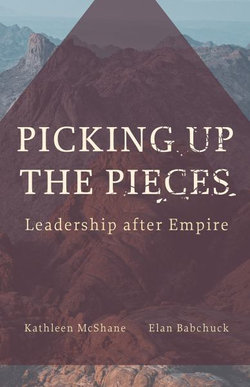While the exodus dates back thousands of years, religious organizations continue to operate in the shadows of the pyramids--the symbol of empire--that the Israelites once toiled to build. The reason is understandable, given that pyramids are remarkably stable structures. Pyramids lend an orderliness to organizational relationships in our churches and synagogues.
However, Kathleen McShane and Elan Babchuck argue that such leadership models reflect syncretic cultural traditions more than our theological convictions. These patterns elevate the structure of the pyramid above the people. They reward the consolidation of power at the top at the expense of the freedom of those below. They constrain creativity and elevate efficiency at the cost of human dignity.
In Picking Up the Pieces, McShane and Babchuck argue that these leadership models are not the way of the gospel. Therefore, today's religious leaders need a more generous model. They need a leadership model where power is shared rather than hoarded, and where every person can stretch toward the fullness of their God-given gifts, regardless of where they land on an organizational chart.
Through an innovative exploration of Moses's biblical narrative, the authors suggest that Moses's leadership failures were because he, too, was shaped by empire. The authors notice Moses's stumbles and corrections and the ways he picks up the pieces of broken leadership templates to guide his people toward their liberation. Picking Up the Pieces also offers stories of contemporary innovators and boundary-stretchers who grapple with failed experiments of religious leadership.
This book offers a provocation to religious leaders to exercise institutional power more generously. The book will speak to leaders who are ready to shift from organizational patterns that demand over-functioning and instead share power so that power multiplies. It will help leaders help their people fully engage in the life-giving promise that awaits them.




Share This Book: